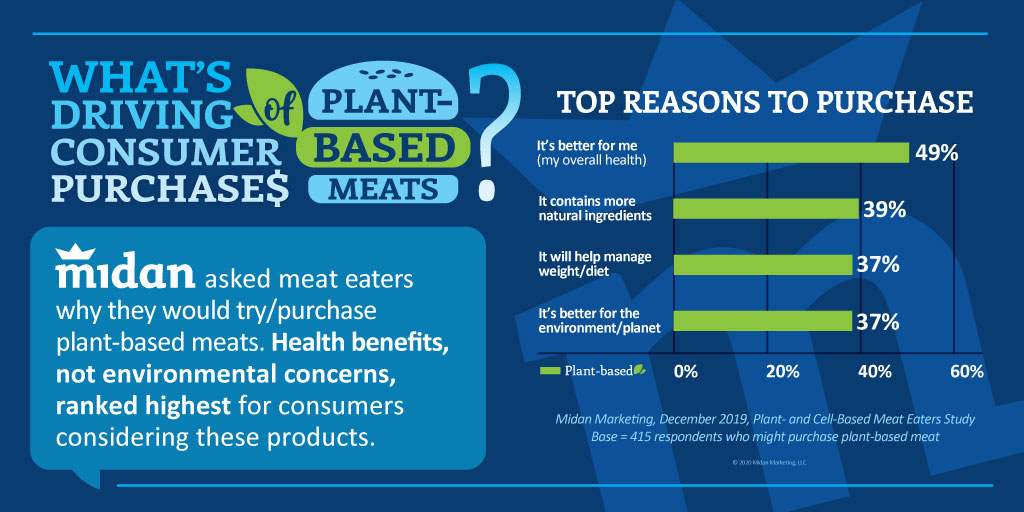The meat industry is experienced in dealing with claims that are not science-based. After all, we’ve heard for years about how meat is bad for our health. But now we are squarely in the sights of those who want to pin climate change largely on animal agriculture. Tie in the climate-focused marketing strategies of plant-based meat companies like Impossible and Beyond Meat, and it’s easy to conclude that concern about climate change is what’s driving people to seek out protein alternatives.
But is the environment truly the main driver behind the popularity of plant-based meats? At Midan, we wanted to learn more about “the why behind the buy” for these protein alternatives. This past December, we surveyed 750 meat eaters about their reasons for trying/buying plant-based meats (and cell-based meats in the future). The answers were enlightening.
Of the 415 respondents who said they might buy these products, nearly half (49%) report the primary reason for purchasing plant-based protein is their belief that it is better for their overall health. The next two top reasons were plant-based protein products contain more natural ingredients (39%) and will help them manage their weight (37%).
Concern for the environment, rather than coming in first, tied with weight management in the third slot.

I guess it shouldn’t be surprising that we humans are first and foremost concerned about ourselves versus the world at large. But what is the learning here for the meat industry? If you assume, based on factors like Hollywood hype and competitors’ amped-up marketing tactics, that environment is leading the alternative protein charge, you’ll miss the mark when communicating with today’s meat eaters. Based on our research, messaging platforms that focus on the health/nutrition benefits of meat are much more likely to hit home. (To see how “real” meat stacks up against plant-based meat nutrition facts, read Danette Amstein’s Meatingplace blog.)
The other takeaway here, of course, is that environmental concerns still factor into today’s complex meat buying equation. To that end, many participants in the meat channel are focused on strengthening their sustainability programs and sharing these initiatives to remind consumers that our industry cares very much about the planet. (Our livelihood depends on the good stewardship of its natural resources.)
There will always be lots of chatter about our ever-evolving meat industry; the key is to cut through the noisy voices to get to the ones that matter. Effective marketing relies on listening and responding to today’s meat eaters. You can’t reach your consumer if you don’t know your consumer.


